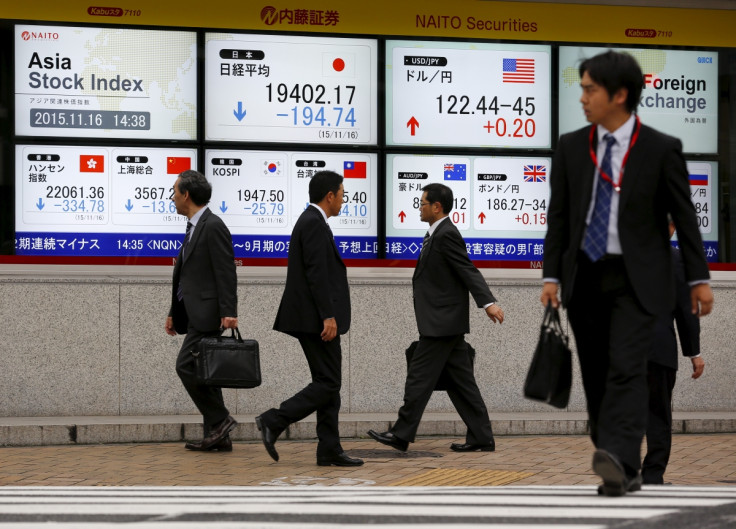Asian markets: China nears bear market territory as Brent slips

The entire clutch of Asian stock markets was trading lower for the day. This was because of a slump on Wall Street overnight and declining commodity prices with crude recently declining to 12-year lows that showed investors' continuing concern over the global economy and the China slowdown.
China's Shanghai Composite Index, which was volatile during the day, was trading down 1.09% at 2,917.52. The index had at one point declined as much as 2.8%, marking lows more than last summer's crash. It is also on track to enter a bear market that is defined as a fall of 20% or more considering its recent high was reached on 22 December 2015. However, from its June peak, China's benchmark index is down 44% and from year-to-date, it is down 7%.
Stephen Ma, head of greater China at BMO Global Asset Management, blaming the yuan for the volatility said, "The [Chinese] currency is causing tension in the whole world. What we're seeing now is the result of a lot of government intervention [from China]", according to The Wall Street Journal.
Elsewhere in Asia, Hong Kong's Hang Seng was at 19,608.96, down 1.63%, Australia's S&P/ASX 200 was trading lower by 1.71% at 4,902.10, South Korea's KOSPI was at 1,886.03, down 1.58%, India's CNX Nifty was trading lower by 1/03% at 7,484.30 and Japan's Nikkei 225 was at 16,950.05, down 4.32%.
Among commodities, oil prices, have been on the decline in recent times following supply exceeding demand. During Asian hours, WTI Crude oil was trading higher by 0.23% at $30.55 a barrel, while Brent Crude was down 0.79% at $30.07 a barrel.
While Standard Chartered recently warned that oil prices could slide to $10 a barrel, Fereidun Fesharaki, the Iranian chairman of Facts Global Energy (FGE), opined last week that oil prices could fall to $25 a barrel by March as Iran is expected to begin increasing its oil production soon, following the removal of international sanctions.
© Copyright IBTimes 2025. All rights reserved.





















